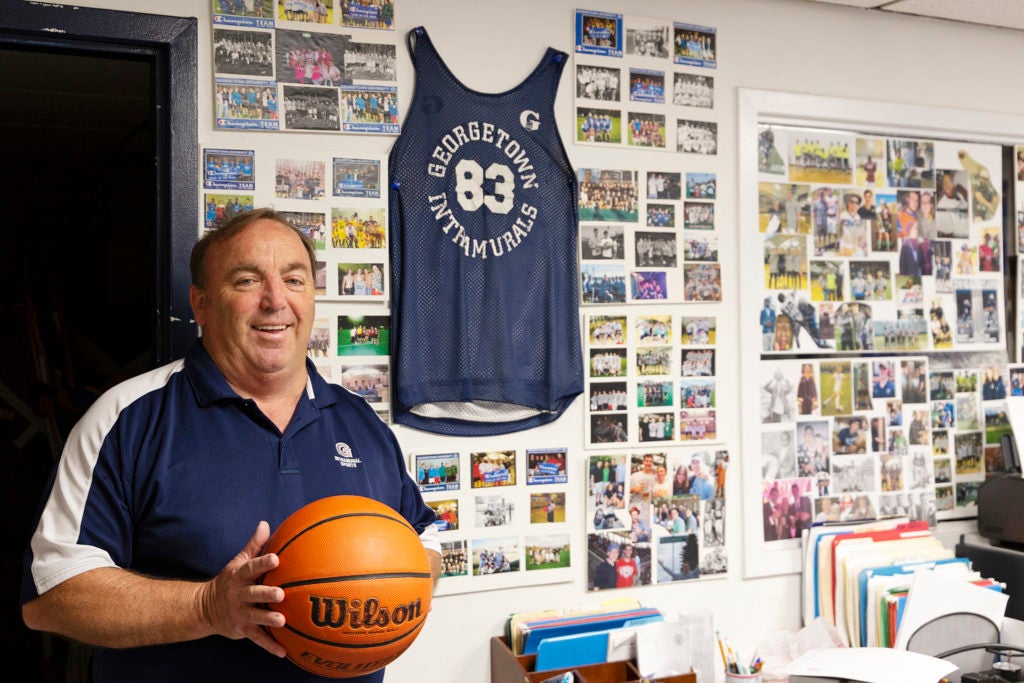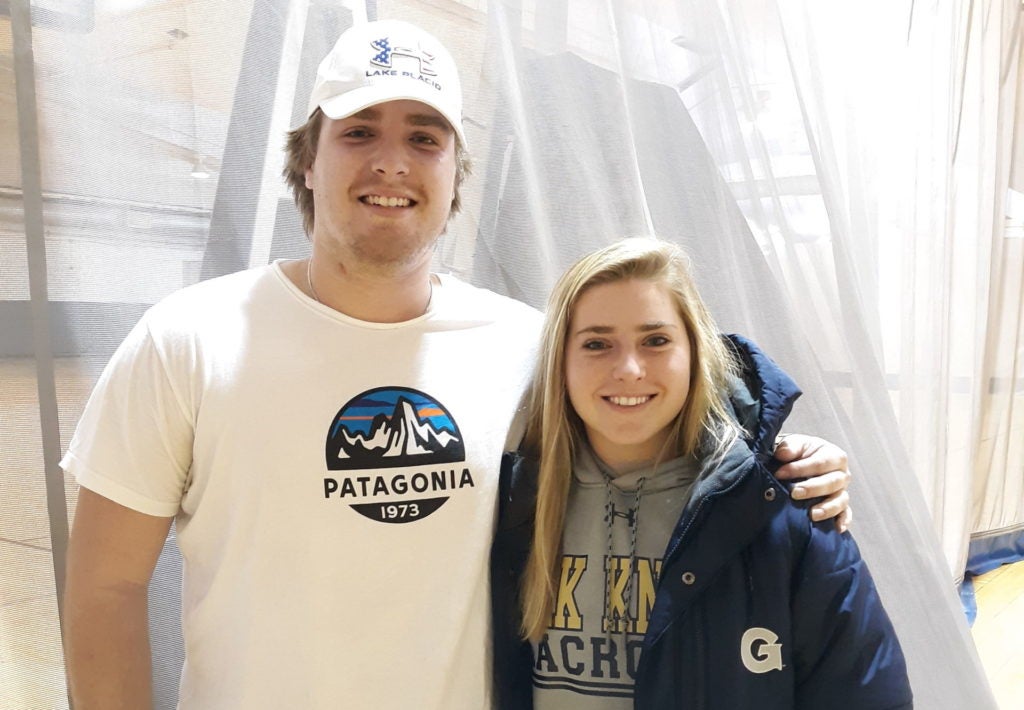I (a)M Wedge: The Advancement of an Intramural Sports Department
Posted in Announcements Blog Intramural Sports News
By Caitlin McDermott (COL ’23)
Communications Assistant at Yates Field House

Transforming the Campus Recreation Intramural Sports (IM) department into a unit that comprehensively withstands the test of time, actively promotes inclusivity and diversity within the foundation of its framework, encourages students to take on leadership positions, and instills them with exceptional skills applicable to future careers is no easy (or short-winded) feat. However, through 39 years of dedicated service and hard work, Jim “Wedge” Sullivan reformed Georgetown’s Intramural Sports Program into a service for the students, by the students, for past, present, and future generations.
Wedge is revered by his employees and comrades as a man with a fervent drive, a hearty laugh, an innate ability to mediate. He offers a guiding hand that helps students learn to lead themselves and those around them. Wedge doesn’t ever turn away prospective employees, he actually welcomes them into the IM family, where friendships and bonds form almost instantly. Workers of the IM department often socialize outside of work, creating relationships that promote a healthful and happy work environment. He is recognized for his natural ability to connect with the students, and those bonds serve him (and the IM department) well. Spanning Georgetown generations, Wedge now employees the children of alumni who also cycled through Georgetown’s IM department. The love for Wedge’s confidence and affirmative guidance transcends generations and finds its way through familial lines.
In particular, Annabelle Zebrowski (MSB ‘22) (or “Zebo,” as Wedge has nicknamed the family) recounts her family’s experience with Wedge throughout his time serving Georgetown’s Intramural Sports Program. She worked with Wedge for a year thus far but has known of/about him prior to coming to Georgetown. Zebrowski’s father, Matthew Zebrowski Sr. (‘89), worked under Wedge as an undergraduate, too. Annabelle Zebrowski reflects on her experiences fondly; “Working in [Intramurals] has definitely helped me … create relationships with fellow staff members involved in other activities on campus to help me pursue another club or organization I am interested in. Aside from the connections forged here,[Intramurals]has[sic] taught me crucial skills that I know I will need in life. For example, although I was merely a freshman last year, I had to assert my authority or break up fights between angry players, something that scared me sometimes. Those tests in leadership and confidence I know are critical to my future career.” Zebrowski recounts working at Intramurals as a fun experience, “Wedge does an awesome job of making our time at IMs enjoyable. He brings a sense of humor and lightheartedness, while at the same time always making sure we do our jobs thoroughly and efficiently. He took charge over us but also gave us considerable weight in the decision making, and he always asks for our opinions on new ideas.” Recently, Zebrowksi was promoted to supervisor, a job of great responsibility that she looks forward to fulfilling. Her father was a referee during his time working with Wedge and enjoyed the moments working where he got to see athletes of all abilities “giving it their best.” Matthew Sr. reinforces his daughter’s sentiments, stating that Wedge did a good job by “[delegating] a lot of authority to his student supervisors… [he] was always around and organized.” To this day, Matthew Sr. says when he visits Yates and sees Wedge, he feels as if he is twenty years old again as he is reminded of some of his greatest memories as an undergrad.

This experience is not unique, as Wedge continues to make an impact on those who step through his office at Yates Field House. He makes an effort to keep students engaged, involved, and in charge; his current model of the Intramural Sports Department includes six student managers, twelve student supervisors, two student office managers, and eighty-one student officials.
Officials are students who truly serve other students and constantly work with professional development and evaluations to pinpoint improvements. In fact, Wedge’s employees often cite their jobs with the Intramural Sports Department as a pivotal place where they honed leadership skills. Other employees from the IM Department have gone on to continue work with Georgetown Athletics post-graduation (perhaps maintaining jobs as officials in addition to their post-graduation day jobs), and some have even pursued professional sports management careers. Consistently, juniors who begin working with Wedge say they regret not starting their IM career sooner, as Wedge’s retention rate remains high.
Wedge’s impact, since he began interning at Yates in August of 1980 has depth and breadth that Hoyas can and will carry with them throughout the rest of their lives. He instills leadership skills in students that are applicable in numerous facets, he allows students the opportunity to get involved on campus and escape from “stress culture” (even if just for a little while), and he has crafted an environment where students and employees alike can share a laugh, a smile, or hear one of Wedge’s famed stories.
